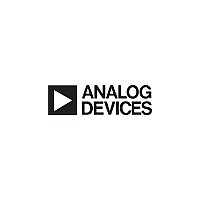AD9927 Analog Devices, AD9927 Datasheet - Page 17

AD9927
Manufacturer Part Number
AD9927
Description
14-Bit CCD Signal Processor
Manufacturer
Analog Devices
Datasheet
1.AD9927.pdf
(100 pages)
Available stocks
Company
Part Number
Manufacturer
Quantity
Price
Part Number:
AD9927BBCZRL
Manufacturer:
ADI/亚德诺
Quantity:
20 000
H-Driver and RG Outputs
In addition to the programmable timing positions, the AD9927
features on-chip output drivers for the RG, HL, and H1 to H8
outputs. These drivers are powerful enough to drive the CCD
inputs directly. The H-driver and RG current can be adjusted
for optimum rise/fall time for a particular load by using the
drive strength control registers (Addresses 0x35 and 0x36).
The 3-bit drive setting for each output is adjustable in 4.3 mA
increments: 0 = three-state; 1 = 4.3 mA; 2 = 8.6 mA; 3 =
12.9 mA; and 4, 5, 6, 7 = 17.2 mA.
As shown in Figure 17, when HCLK Mode 1 is used, the H2,
H4, H6, and H8 outputs are inverses of the H1, H3, H5, and H7
outputs, respectively. Using the HCLKMODE register (Address
0x23, Bits [9:7]), it is possible to select a different configuration.
Table 9 shows a comparison of the different programmable
settings for each HCLK mode. Figure 18 and Figure 19 show the
settings for HCLK Mode 2 and HCLK Mode 3, respectively.
Table 8. Timing Core Register Parameters for H1, H2, HL, RG, SHP, SHD
Parameter
Polarity
Positive Edge
Negative Edge
Sampling Location
Drive Strength
Table 9. HCLK Modes, Selected by Address 0x23, Bits [9:7]
HCLKMODE
Mode 1
Mode 2
Mode 3
Invalid Selection
H1, H3, H5, H7
H2, H4, H6, H8
Register Value
001
010
100
000, 011, 101, 110, 111
Length
1b
6b
6b
6b
3b
1
H1 TO H8 PROGRAMMABLE LOCATIONS:
1
2
3
4
H1 RISING EDGE.
H1 FALLING EDGE.
H2 RISING EDGE.
H2 FALLING EDGE.
4
Range
High/low
0 to 63 edge location
0 to 4 current steps
0 to 63 edge location
0 to 63 edge location
2
3
H1 edges are programmable, with H3 = H5 = H7 = H1, H2 = H4 = H6 = H8 = inverse of H1
Description
H1 edges are programmable, with H3 = H5 = H7 = H1
H2 edges are programmable, with H4 = H6 = H8 = H2
H1 edges are programmable, with H3 = H1 and H2 = H4 = inverse of H1
H5 edges are programmable, with H7 = H5 and H6 = H8 = inverse of H5
Invalid register settings
Figure 18. HCLK Mode 2 Operation
Rev. 0 | Page 17 of 100
Description
Polarity control for H1, H2, HL, and RG (0 = inversion, 1 = no inversion)
Positive edge location for H1, H2, HL, and RG
Negative edge location for H1, H2, HL, and RG
Sampling location for internal SHP and SHD signals
Drive current for H1 to H8 , HL, and RG outputs (4.3 mA per step)
Note that it is recommended that all H1 to H8 outputs on the
AD9927 be used together for maximum flexibility in drive
strength settings. A typical CCD with H1 and H2 inputs should
only have the AD9927’s H1, H3, H5, and H7 outputs connected
together to drive the CCD’s H1, and the H2, H4, H6, and H8
outputs connected together to drive the CCD’s H2. Similarly, a
CCD with H1, H2, H3, and H4 inputs should have
• H1 and H3 connected to the CCD’s H1.
• H2 and H4 connected to the CCD’s H2.
• H5 and H7 connected to the CCD’s H3.
• H6 and H8 connected to the CCD’s H4.
AD9927













